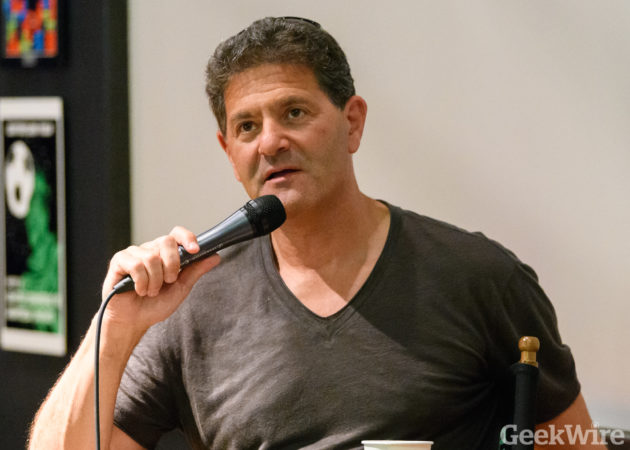
Seattle venture capitalist Nick Hanauer was a vocal supporter of implementing Washington’s capital gains tax, passed in 2021 to help fund the state’s public education budget.
However, Hanauer feels somewhat differently about a recent proposal to tax wealthy individuals in his home state.
Hanauer, an early investor in Amazon who frequently discusses economic justice and corporate greed, expressed his views on a new wealth tax proposal from Washington Gov. Jay Inslee, which aims to tax personal wealth above $100 million at 1%.
“This proposal is impractical, has serious legal issues, and likely wouldn’t survive a ballot challenge,” Hanauer wrote in a series of posts on X.
Hanauer’s criticism is notable, given his prior support for the capital gains tax which taxes profits over $262,000 from the sale of stocks and bonds. This tax sparked controversy among some tech and business leaders who argued such laws might drive away innovation and entrepreneurs.
Hanauer also showed interest in an earlier wealth tax proposal in Washington in 2021, which did not pass, telling GeekWire at that time, “To drive economic recovery in Washington, we have to raise revenue to invest in the people of this state, and the revenue needs to come from the wealthy.” Moreover, he has been a significant advocate for raising the minimum wage.
Nonetheless, Inslee’s proposal does not align with Hanauer’s views, who co-founded Seattle software company aQuantive, sold to Microsoft for $6.4 billion in 2007.
I fully support taxing the wealthy. I've been in the fight for progressive taxation for decades. I was a leading advocate for the WA capital gains tax & spent millions of dollars to pass & defend it. I am proud of that work. But I do not support Inslee’s “intangible assets tax”
— Nick Hanauer (@NickHanauer) December 19, 2024
Even if it clears the legal, implementation & other challenges, it's unlikely to raise much $ given every wealthy person I’ve spoken to in the last few days has said they will leave the state. I believe them. Thoughtful taxes don't actually drive people away, boneheaded taxes do.
— Nick Hanauer (@NickHanauer) December 19, 2024
Hanauer, founder of Seattle-based public policy incubator Civic Ventures, stated that valuing illiquid assets — such as startup equity or artwork — is a “logistical nightmare” and has “failed every place it’s been tried.”
The Seattle tech community also has reservations about the proposal, considering the potential impact on entrepreneurs, investors, and startups.
“We’re still waiting for how it’s written, but if indeed it is based on unrealized capital gains, it could completely destroy our entire innovation ecosystem,” Seattle venture capitalist Aviel Ginzburg told GeekWire this week.
A recent report from the Washington state Department of Revenue highlighted several potential administrative challenges with a wealth tax, including the complexity of valuing intangible assets.
Inslee, who will leave office in January after 12 years as Washington’s governor, proposed the wealth tax as a method to raise revenue for government programs and address a multi-billion dollar budget shortfall.
Washington lacks personal or corporate income tax and primarily generates revenue through sales, property, and business and occupation (B&O) taxes. Critics argue this regressive taxation significantly impacts low-income individuals and households.
“Washington’s strong economy has created extraordinary wealth for a few, while rapid growth and rising costs have made it harder for working families to piece together child care, housing, and health care,” Inslee wrote in his budget report.
The state indicates the wealth tax would affect 3,400 residents and generate $10.3 billion over four years.
Several states, including Washington, have attempted to pass wealth taxes in recent times, though none have been enacted. A federal proposal aiming at fortunes over $50 million was re-introduced earlier this year.
Many countries have repealed wealth taxes due to high administrative costs, tax evasion, and low revenue generation, according to the Department of Revenue report.
Hanauer stated he supports a “high earners’ tax and super-profitable corporations should be asked to pay more.”
“We have to work together to find practical solutions to the budget shortfall,” Hanauer wrote. “We need to do what we did with capital gains: build a big tent that supports practical revenue solutions. This is not that. I am super disappointed.”
Previously: Wealth tax proposal in Washington state reignites debate over taxes and tech talent migration




